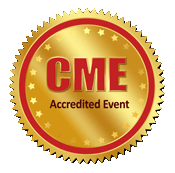Vincent Lwangai
Rainbow House of Hope, Uganda
Title: Stigma and discrimination againist people living with HIV/AIDS
Biography
Biography: Vincent Lwangai
Abstract
Although there is some evidence that HIV/AIDS related discrimination and stigma is declining among families and communities, this continues to be a significant issue in Uganda. HIV/AIDS, is often a taboo issue, fear of disclosure leads to secrecy and denial while fair treatment of PLWHA, OVC and caregivers is preached, when a real situation arises the response is quite different. How can we facilitate attitudinal and behavioral change in this area?
Description
Elderly Widows Orphans Family Support (EWOFS) uses Behavior change process to enable all to live a fuller life amidst and beyond the HIV/AIDS pandemic. Included in this approach is an anti-stigma method: (i) Asking searching questions: How would you feel, think and act if a loved one or friend is diagnosed HIV+? Is HIV/AIDS a punishment from God? Are there people who deserve to be infected? Would you tell your spouse if you were HIV+? Inviting a positive person, who remains unknown until the 3rd day of the program and then discloses, while participants note their feelings after disclosure. (ii) The program’s non-judgmental approach helps people to reveal their status voluntarily.
Methodology
(i) Information on stigma and discrimination
(ii) Exercises to identify and challenge stigma e.g. The “hot seat” – USAID stigma Toolkit
(iii) Stigma codes and videos to help analyze stigma and its impact.
(iv) New advocacy programmes – Orphans and Vulnerable Children, PLWHAs and care givers couples.
Lessons Learnt
(i) The stigmatized more easily process emotions in neutral environments.
(ii) Group discussions make people free, open, and honest.
(iii) At first, anonymity is a priority. At the end, disclosure and group support is more important.
Recommendations
Spread the word: - stigma and discrimination are vices. They spread HIV/AIDS, inhibit VCT attendance and make disclosure difficult. Sensitization empowers individuals to fight these vices, starting with self – stigmatization – involves children as a target group – Use several approaches.

